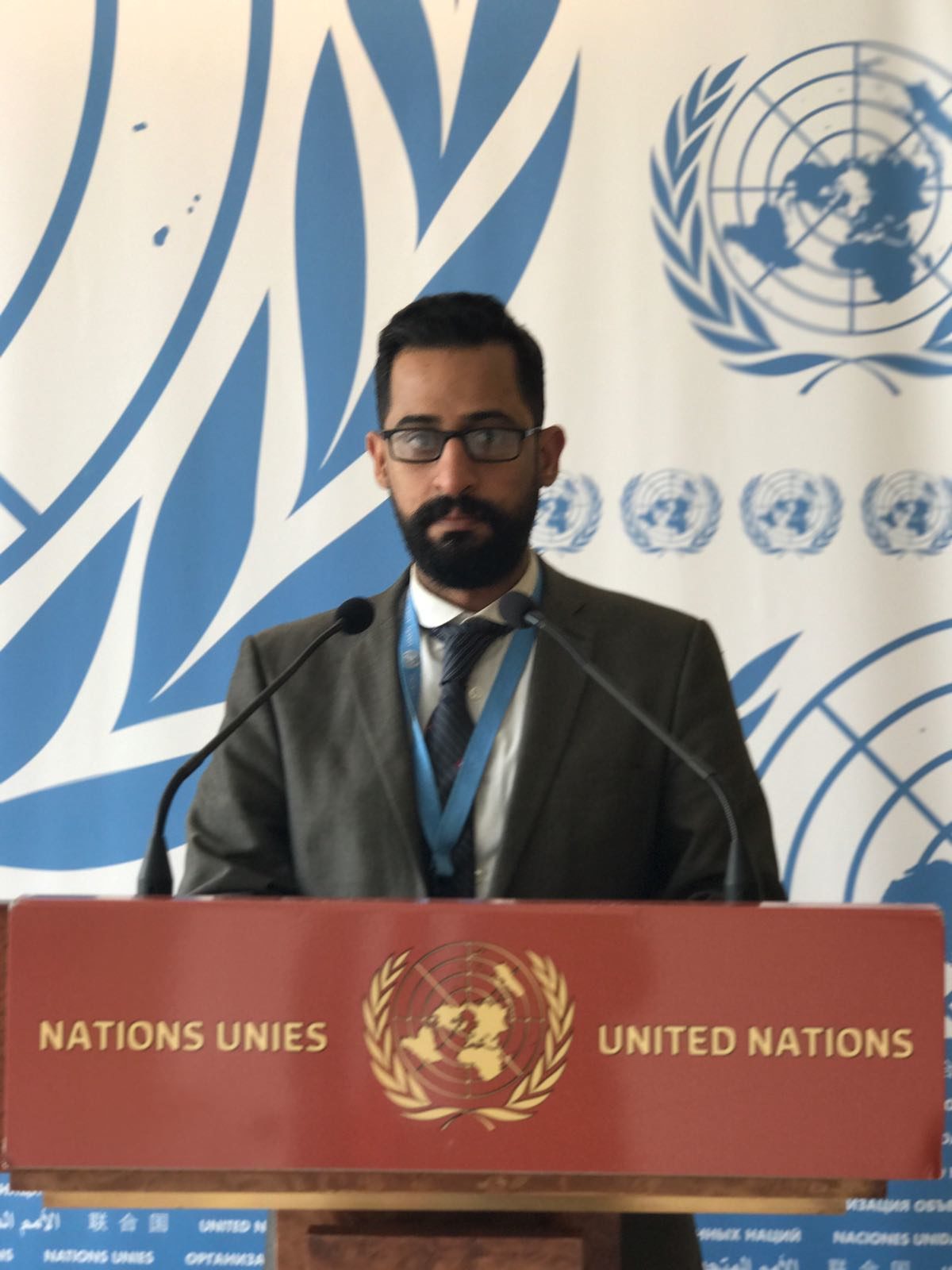On 25 September at the 36th session of the Human Rights Council, Yusuf al-Hoori delivered an oral intervention on behalf of ADHRB during the Item 6 General Debate. In his intervention, al-Hoori highlighted the Bahraini government’s failure to implement its UPR recommendations, including its judicial harassment of human rights defenders and civil and political society members who have exercised their right to free expression. Please continue reading for the full text of his intervention or click here for a PDF.
Mr. President,
Following Bahrain’s 3rd cycle UPR adoption, ADHRB would like to address the Bahraini government’s failure to address past UPR recommendations regarding judicial harassment of civil society for exercising the right to free expression.
Bahraini security forces regularly arbitrarily detain peaceful demonstrators, political activists, journalists, religious leaders, and human rights defenders without warrant or reason. They consistently face severe due process violations, from denial of legal counsel to enforced disappearance, torture, and coerced confessions. This past January, the government executed three men after an unfair trial based on forced confessions and not one meeting with their lawyer. Bahrain’s leading human rights defender Nabeel Rajab, meanwhile, was sentenced to two years in prison last July for media interviews.
With up to 4,000 political prisoners, Bahrain’s prisons are overcrowded and inmates routinely experience inhumane conditions. Men at Jau Prison are consistently refused adequate medical care, and women at Isa Town are sometimes kept 15 to a cell. The government has taken so little effort to remedy these problems that over a thousand prisoners launched a hunger strike to protest these violations this month.
Now, a recent constitutional amendment has empower Bahrain’s military courts to try civilians, promising to increase the rates of due process violations and mass incarceration.
Bahrain must immediately act to implement its new UPR recommendations to eliminate arbitrary detention, protect free expression and civil society activism, and guarantee detention standards under international norms.
Thank you.





